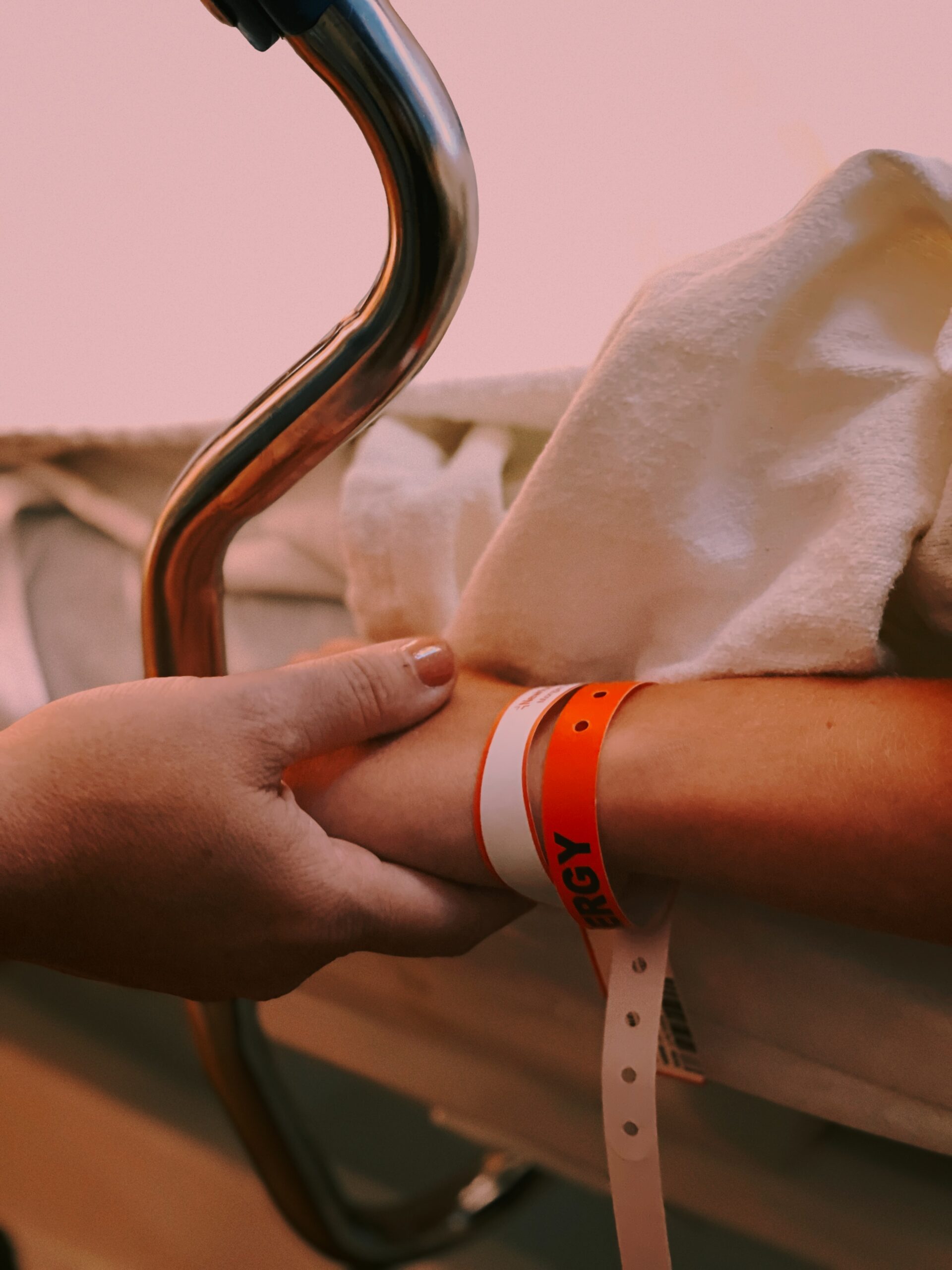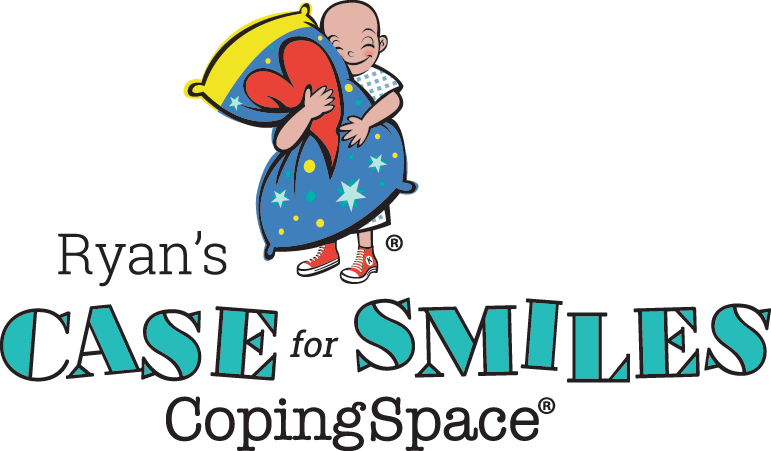BLOG
Medical Trauma Reactions in Caregivers: The Marathon of Medical Care
By Drs. Meghan Marsac and Tess Smith-Thomas
 “At some point, I also had to acknowledge and deal with my own emotions associated with the role I’ve played for many years in his medical care. I put on a happy face and work to make the medical world interesting and fun for him. But it’s often an act. On some days, I pat myself on the back. On other days, I cry in the car. But no matter what, I keep going. My son needs me.”
“At some point, I also had to acknowledge and deal with my own emotions associated with the role I’ve played for many years in his medical care. I put on a happy face and work to make the medical world interesting and fun for him. But it’s often an act. On some days, I pat myself on the back. On other days, I cry in the car. But no matter what, I keep going. My son needs me.”
~Melissa J. Hogan, caregiver of a child with Hunter Syndrome as quoted in Afraid of the Doctor: Every Parent’s Guide to Preventing and Managing Medical Trauma
Children’s medical conditions and treatment don’t just affect the child with the medical condition. Just like Melissa, millions of caregivers of children with medical conditions experience emotional medical trauma symptoms every year. Caregivers have shared with us that they feel “crazy” or that there is “something wrong with them.” Many are surprised to find out that upwards of 30% or more of caregivers of children with medical conditions experience medical trauma reactions (Price et al., 2016) and many do not know where to turn for help.
What Is Emotional Medical Trauma?
The National Child Traumatic Stress Network defines medical trauma as “a set of psychological and physiological responses of children and their families to pain, injury, serious illness, medical procedures, and invasive or frightening treatment experiences” (NCTSN, 2020). In other words, medical trauma is the emotional response to medical diagnoses or medical treatments.
Symptoms of Emotional Medical Trauma
 Symptoms of medical trauma can vary from person to person, but just like more typical posttraumatic stress disorder (PTSD) symptoms (American Psychiatric Association, 2013), there are four primary categories of symptoms that often emerge: avoidance, re-experiencing, hyperarousal, and changes in mood or cognition.
Symptoms of medical trauma can vary from person to person, but just like more typical posttraumatic stress disorder (PTSD) symptoms (American Psychiatric Association, 2013), there are four primary categories of symptoms that often emerge: avoidance, re-experiencing, hyperarousal, and changes in mood or cognition.
A few examples of common ways these symptoms appear include the following:
- Avoidance: Skipping medical appointments (or attempting to skip them), not answering the phone when a doctor or medical team calls, driving a route to avoid passing the hospital, trying not to talk or think about anything related to medical condition or care.
- Re-experiencing: Flashbacks about the diagnosis or injury event or a part of medical care, repeated conservations about the medical conditions/care, thoughts repeating over and over again.
- Hyper-arousal: Difficulty sleeping, irritability, difficulty concentrating or feeling “on edge”.
- Changes in mood/cognition: Increased overall depression or anxiety, increased negative thoughts, withdrawing or isolating from others.
Some individuals can develop medical trauma reactions from a single medical experience (for example, their child’s initial diagnosis or a particularly challenging procedure) or a frightening injury, while others might develop reactions while undergoing ongoing medical care.
Why Do Caregivers Experience Medical Trauma?
 Many caregivers feel it is their job to protect their child and keep them safe. However, when a child is faced with a serious illness or injury, caregivers may not be able to protect them from certain treatments or procedures that are painful or scary for them. Sometimes caregivers need to help their child with treatments that are frightening or painful (for example, giving medications through a shot). In the midst of a serious illness or injury, many caregivers experience feelings of helplessness or hopelessness. It can be very challenging to not be able to fix your child’s health or prevent them from experiencing the tough parts of their medical care. It is also very common for many parents to struggle with feelings of guilt related to everything that their child has to go through, and balancing their time with other children and other life demands. All of these challenges can place caregivers at risk for experiencing medical trauma.
Many caregivers feel it is their job to protect their child and keep them safe. However, when a child is faced with a serious illness or injury, caregivers may not be able to protect them from certain treatments or procedures that are painful or scary for them. Sometimes caregivers need to help their child with treatments that are frightening or painful (for example, giving medications through a shot). In the midst of a serious illness or injury, many caregivers experience feelings of helplessness or hopelessness. It can be very challenging to not be able to fix your child’s health or prevent them from experiencing the tough parts of their medical care. It is also very common for many parents to struggle with feelings of guilt related to everything that their child has to go through, and balancing their time with other children and other life demands. All of these challenges can place caregivers at risk for experiencing medical trauma.
What to Do About Medical Trauma
If you’ve noticed symptoms of medical trauma in yourself, you are not alone. As we mentioned previously, MILLIONS of caregivers struggle with medical trauma reactions. There are lots of strategies that you can try if you are experiencing medical trauma. Getting support from others and paying attention to sleep and nutrition can be helpful for many caregivers. Different strategies work for different people, so you may want to try a few different techniques or strategies to see what works best for you. Consider these steps to get started.
- Take a minute to acknowledge that what you are going through is hard! Give yourself grace when you may not be able to do everything that you want to.
- Ask yourself, “What do I need physically, emotionally, spiritually, financially, and socially?”
- Pay attention to your own signs and signals of stress.
- Set aside a few moments to brainstorm some ideas of things you could do for self-care (i.e. take a walk, take some deep breaths, call a friend, journal, etc.). Think about the time you have available: 30 seconds? 30 minutes? 1 day?
- Start small: Do one thing for yourself.
When to Get Help for Medical Trauma
Share your challenging / feelings with your doctor. Your doctor can help you decide whether you may benefit from support from a mental health  provider. A few reasons to reach out for more help include the following:
provider. A few reasons to reach out for more help include the following:
- Your emotions are getting in the way of what you need / want to do
- You want more support
- You want to feel better and feel stuck
- You want specific parenting strategies to help you with your child’s challenges
- Others are concerned about you
- You are experiencing self-harm / harm to others thoughts / actions
Mental health treatments such as cognitive-behavioral therapy or trauma-focused cognitive behavioral therapy can be particularly helpful.
The ideas in this blog post and resources are not a replacement for mental health care. If you are worried about your own or your child’s behaviors or emotions, reach out to your doctor for help.
Additional Resources for Caregiver Trauma
- Check out Dr. Marsac’s co-authored book (with Melissa Hogan, quoted above), Afraid of the Doctor: Every Parents’ Guide to Managing Medical Trauma and Cellie Coping Kits (tools for parents to use to support their child’s and / or child’s siblings)
- Looking for mobile apps? Check out Calm, Virtual Hope Box, Insight Timer, PTSD Coach, or Headspace.
- Caregiver Self-Care Guidebook / Spanish Language Caregiver Self-Care Guidebook
Keep in mind that these resources can help you learn new coping skills, but are not a replacement for a mental health professional.
**Statements on this blog reflect the author’s personal opinion and do not represent the views of Ryan’s Case for Smiles. They are also not to be viewed as personal medical advice, but rather for the purpose of general knowledge. The reader should speak to their healthcare team, or their child’s, for medical advice.**
 About the Authors: Dr. Meghan Marsac is a pediatric psychologist and a tenured Associate Professor at the University of Kentucky and Kentucky Children’s Hospital. Dr. Marsac also serves as the Associate Director for the Center for Pediatric Traumatic Stress. Dr. Marsac specializes in implementing evidence-based strategies to promote adjustment to medical conditions in children and families. She is a leader in the field of pediatric medical trauma, having published over 65 academic articles, 10 chapters, numerous blogs in Psychology Today, and a groundbreaking book for parents to use to help support their children through medical care as well as to care for themselves: Afraid of the Doctor, Every Parent’s Guide to Preventing and Managing Medical Trauma(www.afraidofthedoctor.com). She is also the CEO of the Cellie Coping Company (www.celliecopingcompany.com), a company with the mission of making medical care better for children with medical conditions and their families.
About the Authors: Dr. Meghan Marsac is a pediatric psychologist and a tenured Associate Professor at the University of Kentucky and Kentucky Children’s Hospital. Dr. Marsac also serves as the Associate Director for the Center for Pediatric Traumatic Stress. Dr. Marsac specializes in implementing evidence-based strategies to promote adjustment to medical conditions in children and families. She is a leader in the field of pediatric medical trauma, having published over 65 academic articles, 10 chapters, numerous blogs in Psychology Today, and a groundbreaking book for parents to use to help support their children through medical care as well as to care for themselves: Afraid of the Doctor, Every Parent’s Guide to Preventing and Managing Medical Trauma(www.afraidofthedoctor.com). She is also the CEO of the Cellie Coping Company (www.celliecopingcompany.com), a company with the mission of making medical care better for children with medical conditions and their families.
 Dr. Tess Smith-Thomas is a pediatric psychology post-doctoral scholar at the University of Kentucky and Kentucky Children’s Hospital. She provides clinical care to children and families experiencing difficulty adjusting to an injury or illness. Dr. Smith-Thomas is also committed to conducting applied, clinically relevant research alongside and related to her clinical work. Her research investigating etiological models of early childhood disorders to improve diagnostic assessment and intervention has been published in top-tier academic journals including Journal of Abnormal Child Psychology and Journal of Clinical Child and Adolescent Psychology. Dr. Smith-Thomas also collaborates with the Center for Pediatric Traumatic Stress to implement trauma-informed care throughout the medical setting.
Dr. Tess Smith-Thomas is a pediatric psychology post-doctoral scholar at the University of Kentucky and Kentucky Children’s Hospital. She provides clinical care to children and families experiencing difficulty adjusting to an injury or illness. Dr. Smith-Thomas is also committed to conducting applied, clinically relevant research alongside and related to her clinical work. Her research investigating etiological models of early childhood disorders to improve diagnostic assessment and intervention has been published in top-tier academic journals including Journal of Abnormal Child Psychology and Journal of Clinical Child and Adolescent Psychology. Dr. Smith-Thomas also collaborates with the Center for Pediatric Traumatic Stress to implement trauma-informed care throughout the medical setting.
References
- American Psychiatric Association. (2013). Diagnostic and statistical manual of mental disorders (5th ed.). https://doi.org/10.1176/appi.books.9780890425596.
- National Child Traumatic Stress Network. Medical Trauma. https://www.nctsn.org/what-is-child-trauma/trauma-types/medical-trauma. Accessed May 11, 2020.
- Price, J., Kassam-Adams, N., Alderfer, M.A., Christofferson, J., Kazak, A.E. Systematic Review: A Reevaluation and Update of the Integrative (Trajectory) Model of Pediatric Medical Traumatic Stress. 2016. Journal of Pediatric Psychology, 41 (1): 86–97, https://doi.org/10.1093/jpepsy/jsv074
- Posttraumatic Stress in Pediatric Cancer. The Children’s Hospital of Philadelphia. https://www.chop.edu/centers-programs/cancer-center/posttraumatic-stress-pediatric-cancer
